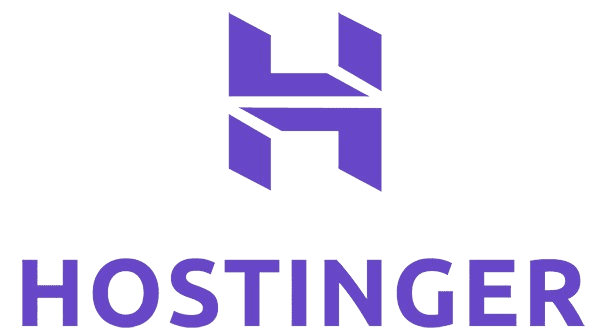Forget sifting through mountains of data by hand! Artificial Intelligence (AI) is revolutionizing market research, making it faster, more accurate, and bursting with insights. Let's explore some of the top AI tools that are transforming the game, along with real-world examples to show you how they work.
1. Uncover What's Hot: Exploding Topics
Imagine identifying the next big trend before anyone else. Exploding Topics uses AI to do just that. It scours social media, search engines, and other online sources to pinpoint emerging trends across various industries. Need to brainstorm topics for focus groups or interviews? This tool helps you stay ahead of the curve and ensure your research is laser-focused.
2. Decode Customer Conversations with Gong
Ever wished you could instantly grasp the key takeaways from a customer interview? Gong is your AI-powered genie in a bottle. This platform records and transcribes calls, then uses AI to generate summaries that highlight essential points, contextual insights, and frequently mentioned keywords. Perfect for multilingual interviews, Gong saves you time and ensures you capture every crucial detail.
3. Get the Latest Scoop with Perplexity.ai
Think of Perplexity.ai as your research assistant on steroids. This user-friendly platform integrates directly with internet browsing, providing you with the most up-to-date information at your fingertips. Need to conduct general market research or analyze competitors? Perplexity.ai equips you with the latest data and insights, making it a powerful tool for staying informed
4. Craft Comprehensive Reports with Aomni
Running a B2B business? Aomni is your AI secret weapon. This platform acts like an intelligent agent, gathering extensive internet data points to create detailed market or industry reports. Say goodbye to tedious research – Aomni saves you precious time and provides a broad understanding of current trends
5. Spark Ideas and Analyze Insights with ChatGPT
ChatGPT is your one-stop shop for market research tasks. With its natural language processing capabilities, it can transcribe interviews, generate customer insights based on transcripts, and even help you brainstorm creative strategies. Use it to unlock new perspectives and transform your research process
6. Organize and Analyze Like a Pro with Notion AI
Notion AI takes data organization to the next level. This innovative tool integrates with your databases and automates AI prompts, making data analysis a breeze. It streamlines the research process, ensures all your information is readily available, and empowers you to draw deeper insights from your research
7. Unlock Customer Insights from Reviews and Social Media with Canvs.ai
Imagine being able to listen to every conversation about your brand online. Canvs.ai uses AI to analyze customer reviews and social media buzz, helping you understand customer sentiment, identify emerging trends, and see how your brand is perceived. It's like having a real-time focus group happening 24/7!
8. Your Social Listening Radar with Brandwatch
Social media is a goldmine of customer insights, but sifting through endless posts can be overwhelming. Brandwatch goes beyond simple keyword searches. Its sophisticated algorithms analyze social media conversations to track your brand mentions, understand customer sentiment towards your competitors, and even identify influential voices in your industry. It's like having a social listening superpower!
9. Unearthing Insights with Qualtrics XM Discover
Surveys are a great way to gather customer feedback, but analyzing the data can be time-consuming. Qualtrics XM Discover uses machine learning to automatically identify patterns and trends within your survey data. This not only saves you time but also helps you prioritize the most important findings and generate actionable business strategies based on what your customers are telling you.
Examples of AI in Action:
· Netflix: Leverages AI to personalize content recommendations for each user. By analyzing viewing history and preferences, AI can predict what shows viewers are most likely to enjoy, leading to higher engagement and customer satisfaction.
· Coca-Cola: Uses AI to analyze social media conversations and identify emerging trends in consumer preferences. This allows them to adapt product offerings and marketing campaigns to stay ahead of the curve.
· Procter & Gamble: Utilizes AI-powered chatbots to gather real-time customer feedback on new product prototypes. This provides valuable insights that can be used to improve product design and functionality before launch.
· Ford: uses AI-powered sentiment analysis to extract actionable insights from vast amounts of customer reviews to improve future car models.
· Macy's: implemented an AI-powered advertising platform that analyzed customer data and browsing behavior. This allowed them to deliver targeted ads across social media and search engines, showcasing products relevant to each customer's preferences.
The Future of Human-AI Collaboration in Market Research
While AI offers tremendous potential, it's important to remember that it's a tool, not a replacement for human researchers. The most effective approach lies in human-AI collaboration. Here's how this collaboration plays out:
· AI Handles the Heavy Lifting: AI automates tedious tasks like data collection, analysis, and trend identification. This frees researchers to focus on interpretation and strategic thinking.
· Humans Provide Context and Expertise: Researchers bring their industry knowledge and understanding of human behavior to interpret AI insights within the context of the market landscape.
· Continuous Learning for Both: As technology evolves, both AI models and researchers need continual learning to stay informed of the latest advancements and market trends.
By leveraging AI tools and fostering a collaborative approach, market research becomes more efficient, accurate, and insightful. This empowers businesses to make data-driven decisions, develop innovative products, and achieve a competitive edge in the ever-evolving marketplace.
AI is not a passing fad; it's here to stay. By embracing AI tools and fostering human-AI collaboration, businesses can unlock a treasure trove of customer insights. This paves the way for a future of informed decision-making, customer-centric strategies, and sustained market success.







